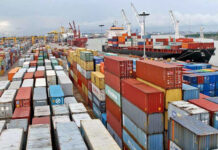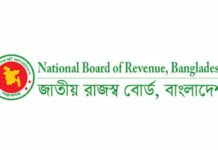If Bangladesh comes out from the list of least developed countries in 2026, the Japanese market will impose a tax of 12.8%, increasing it from 7.4%, on Bangladeshi products, especially readymade garments. At present Bangladesh gets duty-free facilities there.
This information was given in the main article organised by the Centre Policy Dialogue (CPD) on the occasion of the 50th anniversary of Bangladesh-Japan relations last week. Three recommendations have been made to continue trade facilities in the Japanese market after graduation from LDC. These are bargaining with GSP Plus, maintaining trade benefits for another two to three years in the context of COVID-19, and signing a Free Trade Agreement (FTA). It also called for ensuring the necessary environment for investment within the country to attract Japanese investment.
CPD researcher Syed Yusuf Sadat presented the keynote address at the dialogue held at Westin Hotel in Dhaka. CPD Executive Director Fahmida Khatun presided over the event.
The chief guest at the event, Planning Minister MA Mannan, said that Bangladesh’s relations with Japan have not weakened in the last 50 years. Citing the good relations with Japan, he said, ‘Japan is helping to build the Matarbari power plant, so Matarbari is now called Japanbari.’
He gave another example, ‘Once the Prime Minister of Japan visited Bangladesh and visited a bridge built with Japanese assistance, but as the bridge was narrow, he immediately announced his support to build another bridge next to it.’
Japan’s Ambassador to Dhaka Ito Naoki spoke with Japan about the FTA. He said that many people here have urged to sign FTA. Work regarding this is underway between the two countries. A joint survey was conducted in 2020. He added that Japan needs skilled manpower. So Bangladesh needs to be trained to create skilled people, for which the private sector has to come forward. Japan will need a lot of manpower in the hospitality, nursing, and restaurant sectors.




